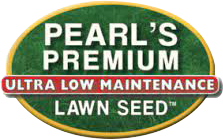Choosing the right keywords is an absolutely crucial aspect of your inbound marketing efforts. When you have the right keywords in place, then you can drive the kind of targeted traffic to your website that you’re looking for, but many marketers struggle with picking out the ones that will be the most effective. In order to give you a bit of a boost in the right direction, we’ve compiled a handful of keyword selection tips that will help you build quality, targeted keywords lists to use all over your website, from site pages to blog posts and back again.
Keyword Tips for Inbound Marketing
- Don’t just guess. Now is not the time to throw darts and just use whatever the dart lands on, so don’t just guess what keywords you think people will search for to find you – you have to do the research. The Google Keyword Tool is both free and effective, and you can take things a step further by using something like SpyFu to see what keywords your competitors are running ads to.
- Look for longtails. A longtail keyword is basically just one that consists of two or more words, but the beauty of them is that they allow you to drive targeted traffic, and targeted traffic is quality traffic. For example, say you have a website that sells watches, and you want to run ads and drive traffic to the section of your site that sells watch batteries. You could technically simply choose the keyword “batteries” to use here, and it would be correct, but it wouldn’t be ideal. Why? Because it’s a very broad keyword (that’s also likely to cost you a pretty penny), so anyone hitting up Google for any kind of battery may click on your ad or your link. “AA batteries” or “cellphone batteries” or “laptop batteries” would all run the chance of serving up your ad, but you don’t carry any of those batteries, so it’s a waste of time for everyone, including you, and it’s going to cost you money, too. Instead, it’s better to choose a longtail keyword here, like “watch batteries” and “batteries for watches.” The more specific the keyword, the better off you will be.
- Consider local keywords. This is only for those businesses that can and do operate on a local scale, but incorporating keywords that are targeted to your geographic location is a great way to pull in targeted traffic. If you are a construction company, for example, that serves the Boston area, then you should check into adding that city name to your keywords so people in Boston looking for a construction company can easily find you.
Careful keyword selection makes for better inbound marketing. As you use these tips to compile your keywords lists, make sure you keep good track of what you’re using and where, so you always have a good grasp of what’s going on on your website.

[single_callout/]














